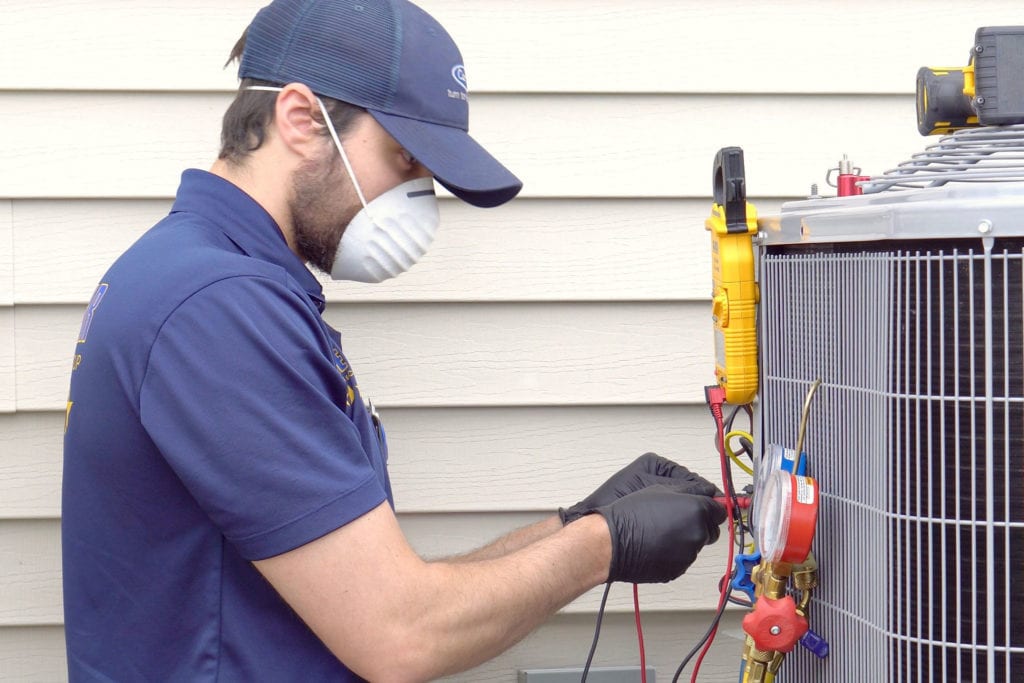The HVAC unit plays a key role in providing comfort within your home in the changing seasons. It not only controls heat but also influences indoor air quality and energy efficiency. However, like any major home equipment, your HVAC system has a service life and may need an upgrade after many years of service. Recognizing the signs that your system is failing can save you from unexpected breakdowns and higher energy bills in the long run.
If you notice yourself often changing the thermostat, experiencing unsteady temperatures, or encountering escalating energy expenses, it may be time to evaluate your HVAC system. In this article, we will explore the main signs that indicate your HVAC system might require an upgrade. By understanding these alert signals, you can make sound decisions about your heating and cooling systems and opt for solutions that boost both comfort and efficiency in your home.
Understanding Heating, Ventilation, and Air Conditioning Units
Heating, ventilation, and air conditioning stands for climate control, ventilation, and cooling. These systems are essential for maintaining comfortable indoor temperatures and air quality in residences and structures. The main function of an HVAC unit is to manage heat, ensuring that areas are warm during cold seasons and cool in the summer. Additionally, HVAC systems play a vital role in filtering and circulating air, which contributes to a clean indoor environment.
The way your HVAC system works includes multiple components, such as furnaces, air conditioners, ductwork, and temperature controls. The heating component warms the air, while the air conditioning unit chills it. Air flow occurs through the movement of air indoors and outside, ensuring new air access while expelling old air. Understanding view website helps residents recognize when their systems may require service or improvements.
Frequent HVAC problems can arise over time, leading to decreased efficiency and increased energy costs. Issues such as clogged filters, worn-out parts, or duct leaks can impair operational efficiency. Consistent maintenance is crucial for extending the longevity of your HVAC system and making sure it operates at optimal performance. By identifying signs of wear and tear early on, homeowners can make smart choices about fixes or necessary upgrades.
Common Heating, Ventilation, and Air Conditioning Problems and Resolutions
One of the major common problems homeowners encounter is inadequate heating or cooling. This issue often occurs from clogged filters, blocked ducts, or malfunctioning thermostats. Regular maintenance, including replacing air filters and ensuring proper airflow, can alleviate these issues. If the problem continues, it may be advisable to seek the advice of a professional to diagnose potential issues with the HVAC system's parts.
Another frequent issue is unusual noises emanating from the HVAC unit, such as banging, scraping, or squealing sounds. These noises can indicate unsecured or damaged parts, worn bearings, or even foreign objects in the blower. Homeowners should address these sounds promptly, as they can lead to more significant damage if ignored. Scheduling seasonal maintenance can help detect and resolve these problems before they escalate.
Finally, high energy bills often signal inefficiencies in an HVAC system. These inefficiencies can stem from outdated units, poor insulation, or inaccurate thermostat settings. Homeowners can enhance energy efficiency by sealing ducts, replacing to Energy Star-rated equipment, and using intelligent thermostats to optimize heating and cooling schedules. Assessing and addressing these issues can lead to significant savings and better comfort.
Deciding on and Managing Your HVAC System

When selecting an HVAC system for your home, it is important to consider factors such as the size of your space, local climate, and energy performance ratings. Performing a load calculation helps find out the correct size of the unit, ensuring maximum performance without wasting money on energy costs. It is also advantageous to explore modern options like ductless mini-split systems or geothermal heating and cooling, which may offer better efficiency and flexibility compared to conventional systems. Researching various brands and talking to HVAC professionals can also guide you towards a system that most effectively satisfies your needs.
Once your HVAC system is put in place, routine maintenance is essential for its longevity and efficiency. Regular tune-ups, which include cleaning filters, checking ductwork, and checking components, help prevent breakdowns and increase the life of your system. Keeping an eye on your energy costs can also be a great indicator of your system's condition; any sudden jump in costs can signal inefficiencies that need to be fixed promptly. Arranging maintenance in spring and fall prepares your system for the demands of extreme weather, ensuring reliable performance year-round.
Upgrading in a smart thermostat can boost your HVAC system's efficiency even more effectively. These devices allow you to set temperature settings based on your routine, helping to minimize energy consumption while maintaining comfort. Additionally, incorporating high-quality air filters can boost indoor air quality, lower allergens, and shield your system from dust and debris buildup. Overall, a thoughtful approach to deciding on and managing your HVAC system will result in better performance, lower energy costs, and a better home environment.
